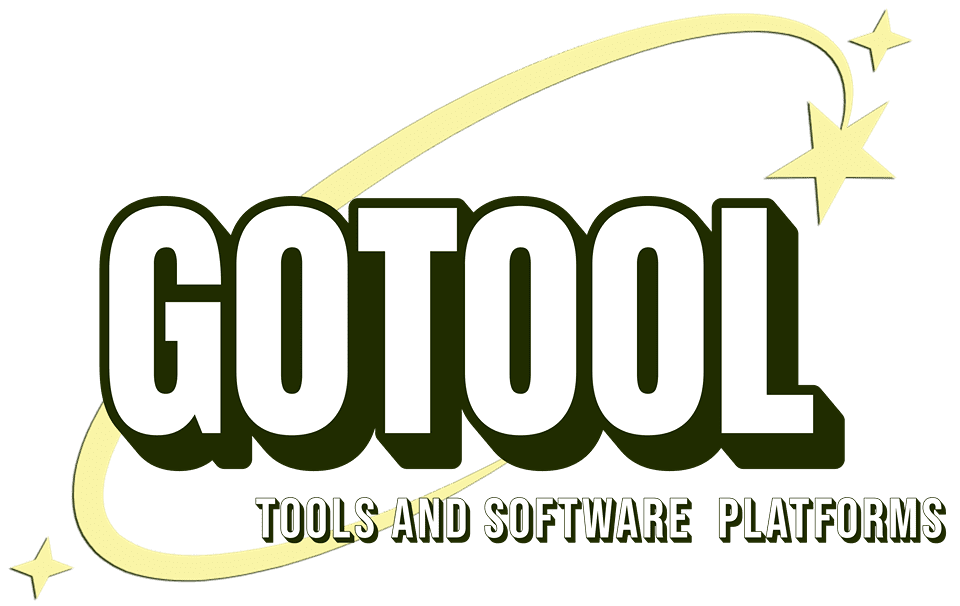Dreaming of starting a web hosting business without the infrastructural hassle? Reseller hosting could be your ultimate ticket to stepping into the web hosting industry with relatively low investment and minimal technical know-how. Let’s dive deeper into the ins and outs of reseller hosting, learn how it operates, and explore its potential for entrepreneurs looking to carve a niche in the digital domain.
How Does Reseller Hosting Work
Enter the world of reseller hosting, where you can jump on the web hosting bandwagon without investing in servers or a tech team. It’s all about buying hosting services in bulk and then renting out smaller portions to your customers. Think of it like being a middleman in the digital real estate market; you lease space and make it work for you – and your clients.
Definition and Concept
Reseller hosting is like getting the keys to an already-established store, where you can set up your own branding and sell products under your name. In simple terms, you purchase hosting services from a big player in the market and then resell them to your own customers, like having a shop within a shop.
With this setup, you get to offer hosting plans to folks who are looking to make a home for their website on the Internet. Imagine it like renting out apartments in a building you don’t own; you handle the leases and your tenants pay you rent, while the building’s upkeep isn’t on your to-do list. You don’t need to be a tech wizard with a deep pocket to do this – reseller hosting is about smart business, not complicated algorithms.
Leveraging Existing Infrastructure
Have you ever thought about starting your own web hosting company but felt overwhelmed by the technical requirements and costs of setting up servers? Well, that’s where tapping into someone else’s setup comes into the picture. When you decide to become a reseller, you use another company’s existing infrastructure to offer hosting services to your clients. This means you don’t need to invest in expensive hardware or worry about complex server management. You can start your business quickly by piggybacking on the robust systems of an established host.
By doing this, you get to avoid the headaches of dealing with hardware maintenance or server security. The parent hosting provider handles all the back-end work, while you focus on growing your customer base. It’s a clever way to get your foot in the door of the hosting business. You can offer high-quality hosting services without the need to understand the nitty-gritty of server technology.
Setting Up a Reseller Hosting Business
If you’ve been bitten by the entrepreneurial bug and are eager to jump into the web hosting game, setting up a business in this field can be straightforward, thanks to reseller hosting. This path offers a practical way to deliver web hosting services to your own clients without starting from scratch—no need to invest in servers or extensive infrastructure. Read on to learn how to lay down the foundation for a prospering reseller hosting venture and what factors can make or break your success.
Selecting a Reliable Parent Hosting Provider
Before jumping into the web hosting pool, you need to find a sturdy diving board—that’s your parent hosting provider. Think of this provider as a partner in your business, one that you rely on to supply the solid services you’ll rebrand and sell. You’ll want to look for a company that’s not only trustworthy but also comes with a track record of minimal downtime and top-notch customer service.
When digging into potential providers, keep an eye out for those with glowing reviews and those who offer a range of services. Rock-solid security features, robust infrastructure, and around-the-clock support are non-negotiables. After all, the stability and reputation of your reselling business hinge on the performance and reliability of the provider you choose.
Whitelabel Hosting Plans
Whitelabel hosting plans are like a blank canvas for your business branding. What’s cool about them is that they allow you to sell web hosting services under your own brand name while the actual hosting solution is managed by the provider. This setup keeps things under wraps—your clients won’t even know you’re reselling someone else’s services.
It’s like being a ghostwriter for a famous author; you do the work, but the front-facing brand is all yours. You get to customize everything—the service pricing, the packages you offer, even the way you market them. Your clients see a professional-looking brand, and you don’t have to mention anything about the parent company. It’s a clever way to build your business empire without the need for deep pockets or technical mastery.
Operational Mechanism of Reseller Hosting
 Ever wondered what keeps a reseller hosting business ticking? It all comes down to how they manage their clients and customize their services to stand out from the crowd. This is like the engine room where all the action happens to keep the websites of your customers up and running smoothly. We’ll peel back the curtain and show you just what goes into running a reseller-hosting business day-to-day.
Ever wondered what keeps a reseller hosting business ticking? It all comes down to how they manage their clients and customize their services to stand out from the crowd. This is like the engine room where all the action happens to keep the websites of your customers up and running smoothly. We’ll peel back the curtain and show you just what goes into running a reseller-hosting business day-to-day.
Client Management and Support
When you’re in the thick of running a reseller hosting venture, managing clients and providing support is your bread and butter. It’s crucial to keep your clients happy if you want to keep them period. You’ll need tools that allow you to track client usage, handle billing, and support clients when they run into issues. The good thing is, that most parent hosting providers hook you up with software that makes this a breeze.
Customer relationship management (CRM) systems are often included in reseller hosting packages and can be a game changer. These systems enable you to communicate effectively with clients, monitor their service usage, and help them out promptly when they need it. And when it comes to support, having a solid strategy in place can really make you stand out. Some resellers provide their own support, while others rely on the parent hosting’s support system. Either way, being available and knowledgeable is key—it’s what will earn you those rave reviews and long-term customers.
Customization and Branding
Putting your unique stamp on your reseller hosting service is not just a nice touch – it’s essential! Customization and branding are what make your business stand out from the crowd. You get the power to create a personalized experience, which not only reflects your brand’s identity but also resonates with your target clients.
It’s like having a blank canvas where you can paint the colors of your company’s personality. You’ll provide the hosting services, sure, but everything from the logo on the client’s control panel to the customer service emails will scream ‘you’. Branding extends to the packages you offer, too; you can tailor them to meet specific needs, drawing in a variety of customers, from small blogs to bustling e-commerce sites. With the right design, you can make a lasting impression that keeps clients coming back.
Benefits of Reseller Hosting
The beauty lies in its accessibility and the clever way it fits many business models. Whether you’re just starting out or looking to expand, there’s room to grow. Let’s check out the perks of getting into this game and see how they could work for you.
Low Initial Investment
Starting a business can often feel like a game where the entry fee is way too steep. But when it comes to entering the web hosting space, this doesn’t have to be the case. Reseller hosting stands out as an exception to the usual hefty startup costs associated with new ventures. You don’t need to break the bank to kickstart your business dream here.
Imagine not having to spend a fortune on servers, data centers, or high-tech infrastructure. That’s the beauty of reseller hosting. You get to utilize the resources of an established hosting provider. You’re essentially buying their services in bulk and then reselling them to your clients under your brand. This means you can start your own web hosting company without the financial heavyweight lifting usually required.
Scalability and Flexibility
Starting small and dreaming big is a common theme among entrepreneurs, and that’s where the beauty of reseller hosting shines. As you begin your journey, you might offer hosting services to a handful of websites. However, as your business grows, so does your capacity to host more. That’s scalability in a nutshell—you can expand your offerings and customer base without breaking a sweat or the bank.
Flexibility is another cornerstone of reseller hosting, giving you the power to tailor services to meet diverse customer needs. Offer different plans with varying storage, bandwidth, and extra features. This way, you can attract a wide range of clients, from bloggers running small personal sites to businesses with heavier online traffic. The ability to adjust your business model with ease ensures your hosting service always hits the right note no matter how the market tunes change.
Become a Hosting Reseller with the Big Player in the Market:
- Liquid Web Reseller Hosting Plans
- A2 Reseller Hosting Plans
- GreenGeeks Reseller Hosting Plans
- InterServer Reseller Hosting Plans
- HostGator Reseller Hosting Plans
- SiteGround Reseller Hosting Plans
Conclusion
Starting a reseller hosting business requires planning, research, and effort. By understanding the key aspects, choosing the right provider, and implementing effective marketing strategies, you can build a successful and profitable business.
Top 10 FAQs about Reseller Hosting Business:
1. What is reseller hosting and how does it work?
Reseller hosting allows you to purchase hosting resources in bulk from a wholesale provider and then resell them under your own brand to your own customers. You act as the hosting provider, managing your clients, billing, and support.
2. What are the benefits of starting a reseller hosting business?
- Low initial investment: No need to invest in expensive server infrastructure.
- Recurring revenue: Earn monthly income from your clients’ hosting fees.
- Flexible and scalable: Choose the resources you need and adjust as your business grows.
- Be your own boss: Set your own prices and manage your business independently.
- Low technical expertise required: Many providers offer white-label solutions with pre-configured packages and support.
3. What are the drawbacks of reseller hosting?
- Competition: The market is saturated, so it can be challenging to stand out.
- Marketing and sales efforts required: You need to attract and onboard your own clients.
- Providing support: You’re responsible for technical support to your clients, even if the issue lies with the wholesale provider.
- Profit margins can be thin: Depending on your pricing and chosen provider, profitability might require a large client base.
4. How much can I earn with reseller hosting?
Earnings depend on your pricing, client base, and chosen plan. Some providers offer tiered pricing structures, allowing you to increase profit margins as your business grows.
5. What technical knowledge do I need to start a reseller hosting business?
A basic understanding of web hosting concepts and some technical troubleshooting skills are helpful. Many providers offer extensive resources and support to help you manage your business.
6. What features should I look for in a reseller hosting provider?
- Reliable infrastructure and uptime.
- White-label solutions for branding and customization.
- Variety of hosting plans and resources to cater to different needs.
- 24/7 customer and technical support.
- Transparent pricing and billing options.
7. Is reseller hosting still relevant in the cloud era?
Absolutely! Reseller hosting offers flexibility and affordability, making it suitable for individuals and small businesses starting their hosting journey.
8. How can I market my reseller hosting business effectively?
- Target specific niches: Identify underserved markets or specialize in specific services.
- Offer competitive pricing and packages.
- Build a strong online presence and brand identity.
- Utilize social media and content marketing to attract leads.
- Partner with other businesses or offer affiliate programs.
9. What are the legal and regulatory aspects to consider?
Ensure you comply with data privacy regulations like GDPR and CCPA depending on your target audience. Familiarize yourself with any specific legal requirements related to online businesses in your location.
10. Where can I learn more about starting a reseller hosting business?
- Many hosting providers offer comprehensive resources and guides on their websites.
- Online communities and forums dedicated to web hosting can provide valuable insights and support.
- Consider attending industry events and conferences to network and learn from experienced professionals.

